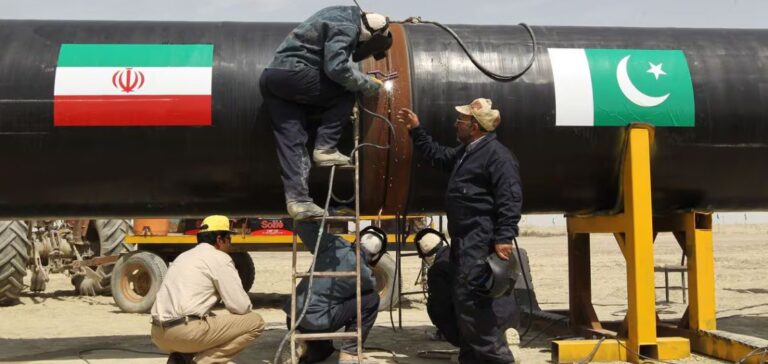After a flare-up of tensions in January, marked by exchanges of strikes between Iran and Pakistan, Ebrahim Raissi’s visit to Pakistan on Monday presents an opportunity to restore ties between the two countries. This détente comes after incidents in which military operations caused civilian casualties on both sides of the border.
Potential impact on the pipeline project
The normalization of relations could speed up the Iran-Pakistan gas pipeline project, crucial to Pakistan’s energy security. The project, inaugurated in 2013, was recently put back on track after Pakistan gave the green light to start work on an initial 80 km section, in order to avoid delay penalties due to Tehran. On the Pakistan side, another regional pipeline, the TAPI (Turkmenistan Afghanistan Pakistan India) pipeline project, is awaiting approval.
Pakistan’s green light and economic implications
In February, the Pakistani government officially launched work on the pipeline, underlining the strategic importance of this project in meeting growing energy demand. This decision comes at a time when Pakistan is seeking to diversify its energy sources and reduce its dependence on costly imports.
Opposition from the United States
Despite the project’s progress, the United States expressed its opposition because of its global sanctions against Iran. This American position could represent a significant obstacle, affecting the financing and progress of the project. The US reaction illustrates the geopolitical complexities surrounding access to energy in the region.
The Iranian president’s visit to Pakistan could mark a turning point in the implementation of the gas pipeline project, despite international challenges and recent bilateral tensions. This initiative is seen as a crucial step for Pakistan’s energy and economic stability.






















